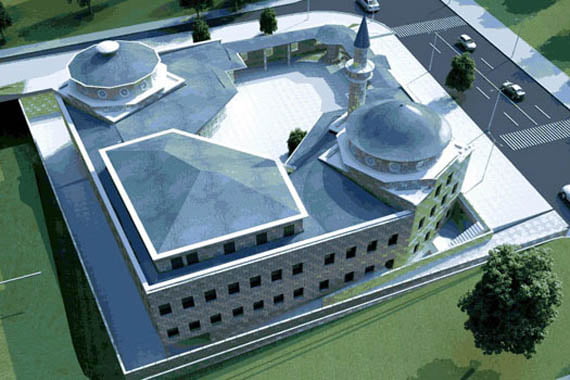The mosque-cemevi project and the settlement process

Date posted: September 16, 2013
ALİ ASLAN KILIÇ, ANKARA
In Muş, where I was during the final days of August for the anniversary of the Battle of Manzigert, I had the chance to speak with citizens from both Manzigert and Ağrı about the terror problem and the solution process aimed at Turkish-Kurdish peace. Last Sunday, I was in the neighborhood of Tuzluçayır in Ankara’s Mamak district to watch the groundbreaking ceremony for the cami (mosque)-cemevi (house of worship for Alevis) project. While there, I headed over to listen in person to the complaints of protesters opposing this particular project.
The general opinion I heard from people was that this problem could have been solved much more easily long ago.
Years ago, provocations could have been prevented, which would have prevented wounds from being inflamed and re-opened, over and over again. The use of the Alevi and Kurdish problems as means to weaken Turkey’s competitive power could have been prevented. The settlement process aims for peace between Kurds and Turks, while the cami-cemevi project aims for peace between Alevis and Sunnis.
Here though, the truth is that there isn’t the slightest bit of enmity between either Turks and Kurds or Sunnis and Alevis. Not even the smallest version of some of the cruel ethnic and sectarian violence experienced in the West is experienced here in Anatolia and if such enmity had existed, it would have been impossible to bring it to an end with just one process or one project.
Here, Kurds and Turks — and Alevis and Sunnis — have never seen each other as adversaries or competitors. To the contrary, they have always viewed one another as kinfolk, with marriages and blood relationships springing forth between them. They have formed trade partnerships with each other in the business world. They fought shoulder to shoulder in the Turkish War of Independence and formed the Republic together.
Despite the many negative events, attempts to provoke them and various skirmishes following the formation of the Republic, these feelings of brotherhood and friendship were not even shaken. This is because, when it came down to the people at the core of this country, there was a wider awareness of similarities in terms of the oppression they were all experiencing. The same ideology that had stolen the basic rights of the Kurds and the Alevis had also targeted the pious and the non-Muslims of the country. The appearance that this tyranny was at the hands of “Turks” and “Sunnis” elicited a general feeling of alienation among many.
The settlement process and the cami-cemevi project will bring to an end the alienation that some were hoping to create through oppression.
In concert with the announcement that the terror organization, the Kurdistan Workers’ Party (PKK), would be withdrawing its armed elements, there were also some who came forward, hoping to block the progress of the cami-cemevi complex. The aims of the armed organization are quite clear — to protect its negotiating power and maintain its power over the people using fear to enter the coming election period on a strong footing. But what do those who oppose this cami-cemevi project say? They believe that Alevism is headed for assimilation. There is the worry that unity between the mosque and the cemevi will divide Alevis into two sections. They are also opposed to the fact that it was Fethullah Gülen who thought up this project, and the Hizmet movement that is supporting it.
The best answers to all these negative reactions come from leading Alevi names. Izzetitin Doğan, the head of the Cem Foundation, calls the Cami ve Cemevi Project a “project of peace and understanding,” underscoring that there is no difference in the perception of what peace is in the Islam of the Alevis and the Islam of the Sunnis. Doğan also notes that those hoping to bar the project from moving forward through protest actions can be neither proper Alevis nor Sunnis and says further that the philosophy of such people is lacking in depth.
The general opinion in and around the area of the project tends to be that other countries are trying to systematically disrupt the atmosphere of peace in Turkey. Some of the countries pointed to by people as being made uncomfortable by Turkey’s rising star when it comes to peace and stability are Germany, Iran, Israel, France, England and the US.
Source: Today's Zaman , September 15, 2013
Tags: Alevi issue | Dialogue | Turkey |























